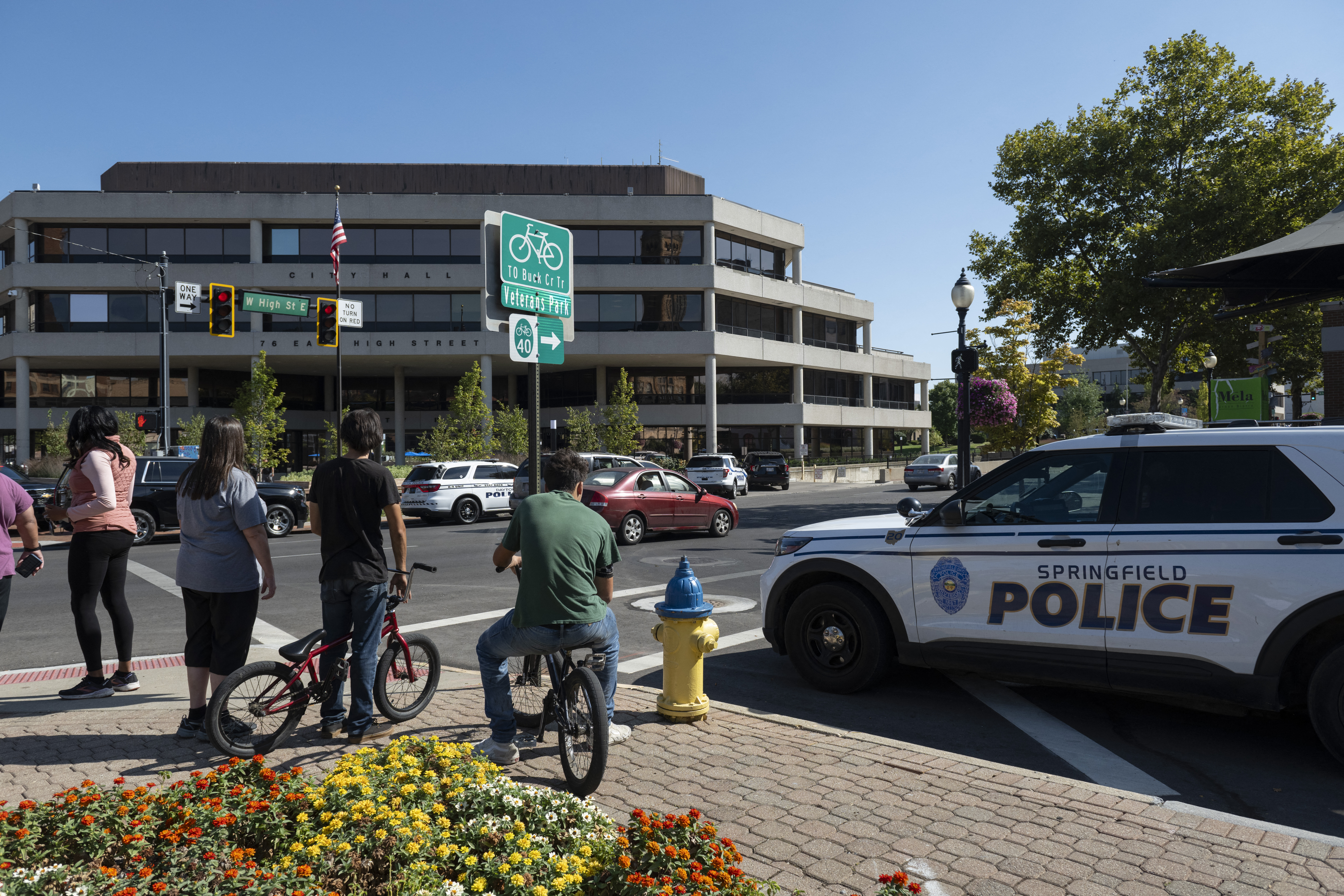The woman behind an early Facebook post spreading a harmful and baseless claim about Haitian immigrants eating local pets that helped thrust a small Ohio city into the national spotlight says she had no firsthand knowledge of any such incident and is now filled with regret and fear as a result of the ensuing fallout.
“It just exploded into something I didn’t mean to happen,” Erika Lee, a Springfield resident, told NBC News on Friday.
Watch NBC6 free wherever you are
Lee recently posted on Facebook about a neighbor’s cat that went missing, adding that the neighbor told Lee she thought the cat was the victim of an attack by her Haitian neighbors.
Newsguard, a media watchdog that monitors for misinformation online, found that Lee had been among the first people to publish a post to social media about the rumor, screenshots of which circulated online. The neighbor, Kimberly Newton, said she heard about the attack from a third party, NewsGuard reported.
Get local news you need to know to start your day with NBC 6's News Headlines newsletter.
Newton told Newsguard that Lee’s Facebook post misstated her story, and that the owner of the missing cat was “an acquaintance of a friend” rather than her daughter’s friend. Newton could not be reached for comment.
Lee said she had no idea the post would become part of a rumor mill that would spiral into the national consciousness. She has since deleted the Facebook post.
Other posts have also contributed to the false allegations, including a photo of a man holding a dead goose that was taken in Columbus, Ohio, but was spread by some online as evidence of the claims about Springfield. Graphic video of a woman who allegedly killed and tried to eat a cat was also found not to have originated in Springfield but in Canton, Ohio, and does not have any connection to the Haitian community.
Local police and city officials have repeatedly said there is no evidence of such crimes in Springfield, but that hasn’t stopped the lies from spreading across the country and igniting a national frenzy that landed on the presidential debate stage this week. Former President Donald Trump and his running mate Ohio Sen. JD Vance, who was born less than an hour away from Springfield, have repeated the baseless allegations.
Lee said she never imagined her post would become fodder for conspiracy theories and hate.
“I’m not a racist,” she said through heavy emotion, adding that her daughter is half Black and she herself is mixed race and a member of the LGBTQ community. “Everybody seems to be turning it into that, and that was not my intent.”
The anti-immigrant fervor in Springfield led to school and municipal building closures on Thursday and Friday after city officials received bomb threats.
Lee said she pulled her daughter out of school and is now worried about her safety with so much attention on her family. She is also concerned for the safety of the Haitian community, which she said she did not intend to villainize en masse.
“I feel for the Haitian community,” she said. “If I was in the Haitians’ position, I’d be terrified, too, worried that somebody’s going to come after me because they think I’m hurting something that they love and that, again, that’s not what I was trying to do.”
Immigrant advocacy groups have said these kinds of claims can be dangerous.
“The Haitian-American community in Springfield, OH and around the country is feeling targeted and unsafe because dehumanizing, debunked and racist conspiracies are being advanced at the highest levels of American politics and are still being repeated,” Vanessa Cárdenas, executive director of America's Voice, a nonprofit that advocates for immigration reform said in an email. “The false claim that Black immigrants are violently attacking American families by stealing and eating their pets is a powerful and old racist trope that puts a target on people’s backs, and it is turbo-charged in the era of MAGA when political violence has become commonplace and we have already witnessed violent incidents incited by such rhetoric.”
Lee said that there are very real problems related to Springfield's population boom that caught the struggling city off guard. Springfield was not prepared to address the housing, health care and other service needs that came with the sudden increase of new residents over the last five years when Haitians arrived, many of them with protected status under federal law.
Still, she never imagined that her Facebook post would set off a national news cycle.
“I didn’t think it would ever get past Springfield," she said.
This story first appeared on NBCNews.com. More from NBC News:



